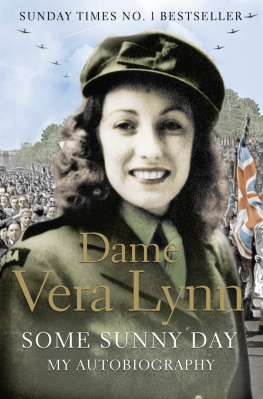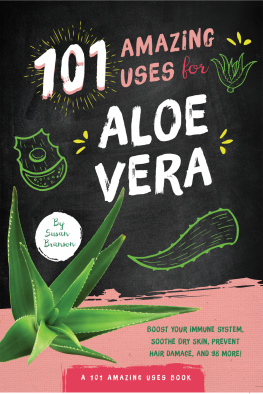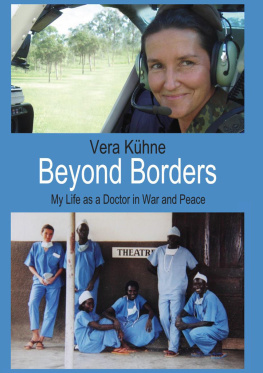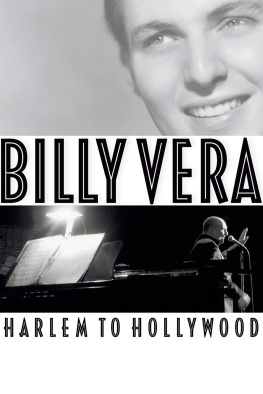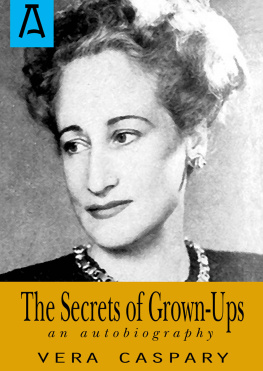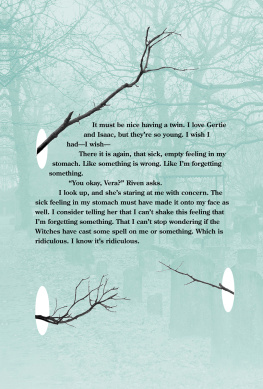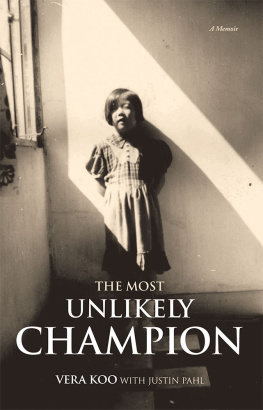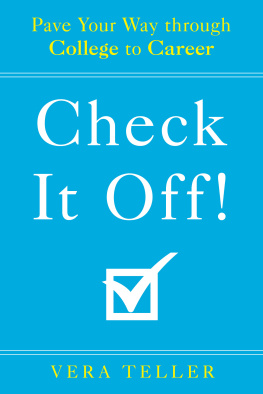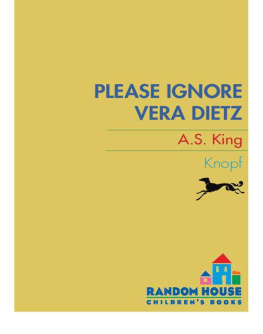To my wonderful Harry, with whom I was so fortunate
to share my life for all those years.
And to The Boys, to whom we all owe so much
your spirit and humour live with me to this day.
Never forgotten.
I must thank all my family, of course, for their constant support and love.
And there are too many others whom I have met and worked with over the years to thank here, so I will mention just three: my dear friend Wally Ridley, for his help in those Denmark Street days; Joe Loss, for selecting me for my first broadcast; and Norman Newell, who produced all my early records. These three men were instrumental in making my life the extraordinary event that it has been.
Iwill always remember the moment war was declared at the beginning of September 1939. I was sitting in the garden of the new house I had bought in Barking with Mum and Dad. Life was going well for me: I was singing with Bert Ambroses band, fulfilling what was really the only ambition I had ever had: to be the best singer with the best band in the land. Before the announcement came, anyone would have told you that times were not easy, but my life was certainly not bad.
On that day I remember we were all drinking tea in the garden, my dad sitting in his deckchair as he loved to do. He was always brown from sitting in the sun. Naturally we had the radio on all the time because everyone was interested in what was going on. For weeks everyone had been on tenterhooks, not knowing what was going to come. And thats when I heard the news. The first thought that came into my head was a selfish one: Oh dear. There goes my singing career. Everything I have dreamed of, I thought to myself, is over. The menincluding all the musicians I knew in the bandwould all be going away to fight. And I would be headed straight for the munitions factory. I was only twenty-two. It seemed like the end of my world.
At that point no one thought that entertainment would become essential during the war. And I certainly never thought I would have the chance to continue singing. I was already very familiar with the words to Well Meet Again by then, but I had no idea that that particular song would become the tune people most associated with the war era. Or that my voice would become the one that most reminded people of the hope for the future we needed to have at that time.
Seven decades later I remember that day as clearly as if it were yesterday. So it makes me especially proud and honoured to know that all these years later people still want to mark the anniversary. This year, 2009, marks seventy years since the outbreak of the war as well as the sixty-fifth anniversary of D-Day, the biggest wartime operation ever. Its difficult for me to believe that it was that many years ago, because in my mind there are times when it feels so recent. It thrills me to know that people still remember and still care. Its so important.
This year also marks exactly seventy years since I first sang that well-known song, the one that made my name, on tour with Ambroses band in the autumn of 1939. Ironically, precisely a year before that, I was on stage while history was being made. On 29 September 1938 I was performing at the Hammersmith Palais in London. Meanwhile the British Prime Minister, Neville Chamberlain, was in Munich for a meeting with Hitler. This was the meeting where Chamberlain believed he had received the reassurance that there would be peace for our time. Which, as we know now, unravelled within the space of the next twelve months.
In many ways I feel honoured and privileged to have become a symbol of that era. Its very humbling. But there have been times in my life when I have felt uncomfortable about it too: it is something to live up to when people call you a national treasure, and that is certainly not an expression I would use myself. I just see myself as someone who found herself in the right place at the right timeor perhaps we should call it the wrong timeand I just happened to have a voice which suited the era and, somehow or other, has stood the test of time.
Im told that schoolchildren today still learn the words to Well Meet Again. That thrills me. It seems that the songs I am remembered for from the war have passed from generation to generation, so that young people today know about them. I still feel a part of things. I have kept myself busy in my semiretirement: I have a garden I look after (with help) and I still drivebut only locally. I feel fortunate that Im in a position where for the past thirty years I have been able to spend time on the charities I support, such as Breast Cancer Research and my trust, which helps children with cerebral palsy. And, of course, I still like to help organizations such as the Royal British Legion, which supports ex-servicemen.
Almost forty years ago I published an earlier version of my memoirs. This was at a time when I was still appearing regularly in my own television show andastonishingly to memy career was still going strong some thirty years after the war. Towards the end of that decadethe 1970sI began the slow process towards retirement, although I have never really wanted to step completely out of the spotlight. Now that I am ninety-two, barely a week goes by without someone asking me to cut a ribbon at some event or other, and I am more than happy to oblige.
At my ripe old age, though, I felt it was time to revisit that era properly and get everything down on paper in a final account. I have also found that as the years pass I remember some things with a clarity that I didnt have before. My trip to Burma, for example, looms large in my memories as one of the pivotal moments of my life. I didnt really understand that when I was in my fifties. In this book, for the first time I have been able to recall that trip in a lot more detailand I even found the red leather Collins diary I carried with me throughout. Im particularly fond of that little diary, because I wasnt supposed to keep it: we were not allowed to take any notes in case they fell into enemy hands. I wrote in it in tiny spidery handwriting that I thought the enemy would never be able to read.
Perhaps unsurprisingly, a lot of the events I am involved with today revolve around wartime. I still attend many charity events and veterans anniversaries, and often the ones that I find most moving are to do with Burma. Five years ago I attended a grand reunion for Burma veterans at Londons Imperial War Museum. It was the sixtieth anniversary of a number of decisive battles fought by the Forgotten Fourteenth Army in the vicious Burma jungle campaign. More than a hundred veterans attended, many in their eighties and nineties. To my astonishment, there was one man there I recognized, although I wouldnt have known his nameNeville Hogan. It turns out I met him on my tour of Burma in 1944. I sang a concert for the Second Battalion Burma Rifles. He was sick in hospital at the time and I visited him there. When I asked him what I could do for him, he said, A kiss. I held his hand and kissed him on the forehead.
At the reunion he was now eighty and I was eighty-seven. I kissed him again on the forehead. He remembered my visit to his camp vividly and told a reporter about it afterwards: Dame Vera came into the room and visited every soldier individually. She stood at the side of the bed and asked each one if she could have anything sent over for them. She was fantastic. She used to come and play off the side of a truck and boost everyones morale. Im very proud of that. To think that I entertained audiences from 2,000 to 6,000 in that blazing heat. The boys would just come out of the jungle and sit there for hours waiting until we arrived and then slip back in once wed left. What I enjoyed most, thoughand still do nowwas chatting to the troops. What they needed was a contact from home rather than a concert. I knew it was my place to provide that. It was the least I could do. When I talked to the men and women who served at war about their thoughts and how they felt about going into action, many of them would just shrug, saying, Its what we are trained to do. Their humility was matched only by their courage, honour and duty.

